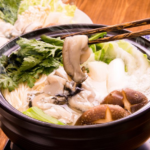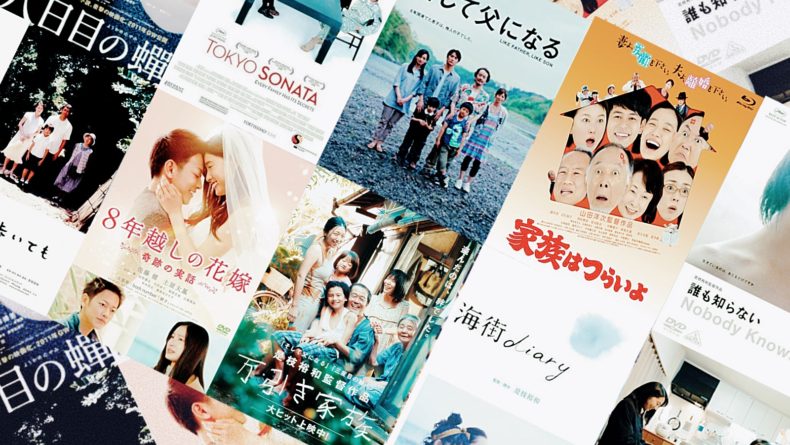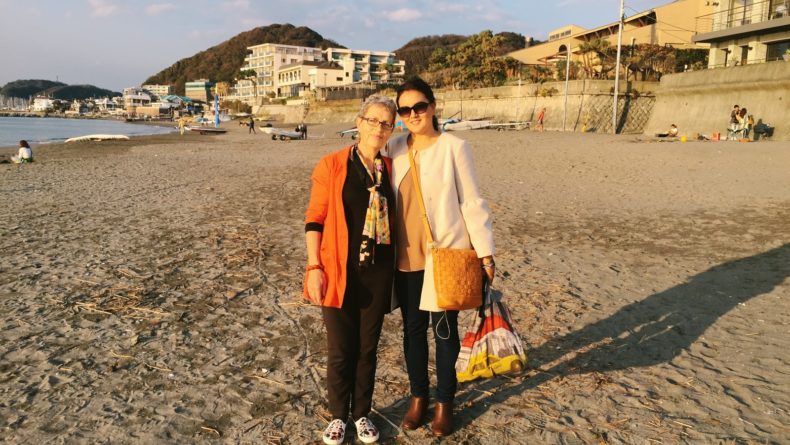Been There, Learnt That: Coping With Our Aging Parents Overseas
It's Tough Being in the "Sandwich Generation"
Balancing our lives in Japan with the needs of aging parents in another country is a difficult reality that many of us will have to face sooner or later.
Checking my email one morning last November, there was a message from my dad in New Zealand, informing me of the results of his latest medical tests. After successful surgery for lung cancer nine years ago, the disease had reared its ugly head again and this time there is little the doctors can do. The specialist predicts that my dad has around six or seven months left to live.
Having seen other foreign friends in Japan coping with a parental illness or bereavement, I knew the time would eventually come for me, too. However, this was small comfort while I sat gazing at my laptop, the words on the screen blurring together as my eyes filled with tears.
The “sandwich generation”
Raising kids in a foreign country and culture is challenging, and our own parent-child dynamic with “the folks back home” usually takes a backseat to the daily reality of parenting in Japan. Nevertheless, while our children are growing up here, our parents are growing older over there, which may result in being caught in the middle as the “sandwich generation.” Of course, this situation isn’t unique to foreign nationals in Japan—it’s a theme that is emerging in many developed countries.
I’ve sometimes used “sandwich” as an analogy for this situation. However, I only recently learned that “sandwich generation” is a bona fide term used by researchers. The phrase was actually coined back in 1981 by a social worker called Dorothy Miller. At the time, it referred to women in their 30s and 40s who were simultaneously caring for both young children and aging parents, but society is changing. Women are starting their families later, while seniors are living longer, so “sandwich generation” now usually means those in their 40s and 50s.
While our children are growing up here, our parents are growing older over there.
A 2013 US survey showed that almost half of Americans in this age group have a parent over 65, while also financially supporting dependent children or young adult children. As for Japan, it’s no secret that the shrinking birth rate, increasing longevity and more young adults who seem content to remain single and live with mom and dad are causing the sandwich generation to feel pressure from every side.
Things can get complicated when part of your “familial sandwich” is an airplane ride away on the other side of the world. I am sure it is equally heartbreaking to deal with an ailing parent whether you’re a man or a woman, but it’s fair to say that women usually assume more responsibility for eldercare.
I’ve seen a number of my foreign female friends go through the process. This often means taking more frequent trips back home, and sometimes it morphs into an extended stay once a frail relative can no longer manage alone. Lives in Japan are put on hold, and the absence strains relationships with partners and kids — not to mention the damage it can do to a career and the financial cost of traveling back and forth.
I am on tenterhooks, always wondering what will happen next.
If there are other family members involved in the caring process back in your home country, there may be disagreements on who is doing their “fair share,” or over inheritance issues when a loved one passes away. None of this is unusual, but it is just that much harder when you don’t live in the same country.
I am lucky in that I have a brother and sister-in-law living relatively close to my parents. Moreover, my older daughter is doing a placement for her medical degree at the largest hospital in the area this year. Even so, I am on tenterhooks, always wondering what will happen next.
Learning to treasure each moment as it’s the last
A foreign wife friend who has lost her own mother offered some heartfelt advice: “Treasure these next few months for the gift they are. I found that knowing that time was limited with my mom allowed me to revel in how much I loved her, and to let go of all the hurts that are normal but unimportant in the whole scheme of things.”
Last year our whole family gathered in New Zealand for Christmas for the first time in several years. Truth be told, my husband and I had been planning to go anyway, but it became all the more pertinent once we realized it was very likely my father’s last Christmas.
Speaking of “last,” I am often the last to know when it comes to news from home. It isn’t that my New Zealand family deliberately keep me out of the loop, but I feel one beat behind. Last year my father suffered several minor heart attacks, but I only learned this when he emailed himself after getting out of the hospital. Hel-lo, family! My mother’s stance has been, “We didn’t want to worry you when it was under control/until we had more definite information” but this has the opposite effect! At this stage in my parents’ lives, I want to know as things happen.
My mother eschews modern technology and has refused to learn how to use email. My dad emails now and then, but these days it is not a very reliable way to communicate, as he doesn’t feel strong enough to check email a lot of the time. Neither parent owns a cell phone, so that only leaves their landline. I’ve started calling them once a week to check in. I have also had to point out to my brother that a simple but timely text message from his end can save me a lot of worry here.
Having seen other foreign friends in Japan coping with a parental illness or bereavement, I knew the time would eventually come for me, too.
We are in uncharted waters now, and I am still unsure of how to navigate forward. In some ways, it reminds me of the day I left the hospital with my firstborn: It was a snowy night in February in Buffalo, NY. I had been in the USA for just six weeks and had been a mother for less than 48 hours. (It didn’t help matters that my husband had inadvertently parked in a loading zone and they just were about to tow the car away when I emerged with our infant son. Luckily, the nurse who was escorting us managed to convince the traffic guard to give us a break. “Be nice. She just moved here and she just had a baby!”)
The nurse handed over our tiny son and my husband and I fumbled with the unfamiliar process of securing him into the infant seat. “Good luck, Louise!” she said. I wanted to shout, “Wait! I’m not ready for this yet!” but I tried to smile bravely and waved to her as we drove off. Somehow it worked out and that baby recently started his first job out of college. I feel far from ready to face this latest stage, but life goes on, ready or not.
I’ve planned another trip to New Zealand soon, and I’m making changes in my work schedule in order to have more flexibility for the coming year. Even so, I wish I could be closer and could do more for my parents.
I had a heartwarming text from my daughter the other day. “Had lunch with Nana and Grandpa and they seemed to be doing quite well.” It wasn’t the simple words, so much as the good feeling I got from knowing that two sides of my “sandwich” had been able to spend time with each other.
“Been There, Learnt That” is a monthly column in which Louise George Kittaka discusses various issues she went through when raising her three children in Japan. If you have any questions for Louise on a topic related to raising bicultural children in or out of Japan, send us an email at editorial@gplusmedia.com or leave us a comment. Louise will answer your questions in her next article.
















Leave a Reply